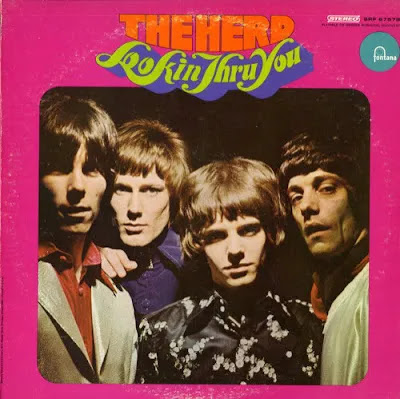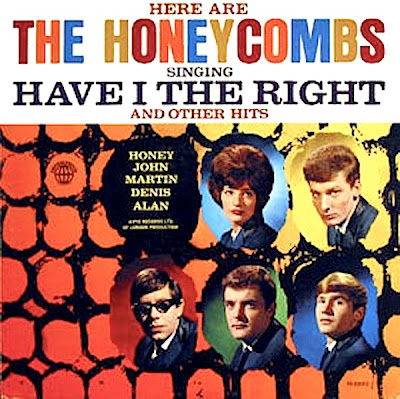March 1, 2017
My last full day in Moji-Ko. Sometime tomorrow we will go back to Tokyo on the Shinkansen (Bullet Train). I spent the last hour or so at the arcade, revisiting old stationary shops and one crucial music store called Nitchicu. In 1989, I wandered into this store to look for some Enka cassettes. What I found on CD is the Japanese edition of the first two Honeycombs albums on one disc. The first is "The Honeycombs" and the second and more obscure album is "All Systems Go!" The only song I remembered was "Have I The Right," which was and still is my favorite record. At the time I was having severe feelings of being isolated, not only due to being in Japan but the fact that my wife had to go through a period of time getting her papers in order to come back to the United States. The whole process took a year. So when that happened, I was forcibly exiled in Moji-Ko. My second home became a precious image to my writing and in essence, my heart as well. Purchasing The Honeycombs CD was not only a pleasurable surprise but also a direct connection to my youth.

At the time, I had a portable CD Walkman from Sony. The Honeycombs CD was the only music I had in this city, and therefore when I went on my daily long walks through the town, I would play this album. It shouldn't be a shock to anyone that the entire album is a masterpiece. Also, it was the first time I was introduced to the world of record producer Joe Meek. I discovered him at The Wave Record store the following year but didn't realize the connection between The Honeycombs and his other recordings. "All Systems Go!" was the last album he made with a band. After that, he shot his landlady and then killed himself. At the time, I wasn't thinking of Meek, but more of the emotional power of the music as I wandered through the streets of Moji-Ko.

I didn't bring the CD or music with me on this trip, but I did revisit the spaces I spent time. Oddly enough, very little changes here. To be kind life is slow, or to be honest, perhaps died. For reasons I'm not clear about, I find Japan to be a mixture of sadness with a touch of happiness. There is little youth activity here. I mostly see old people wandering around, and I realize that perhaps, I'm the same age as them. A collective decay that is tattooed on the moldy side of the building structures. There is a cat cafe located in a very dark area of the arcade. Even the kitties here are as old as the residents of Moji-Ko.
One is never aware of the present. The future is non-existent, but there are traces of the past throughout Moji-Ko. Some on purpose and others to remind one that there is no future. The present is the past, and the future, who knows?

I come upon an old coffee shop that has been opened since the 1920s. Perhaps using the same cups from that decade. I ordered hot coffee because, for one, it is the only thing I can order using the Japanese language. I was asked to choose a cup that was hanging by the entrance. I spent a full minute before choosing the striped cup from the bottom, the second cup. When I sat down, it felt like I was in someone's living room. There was a TV set playing old Astro Boy black and white cartoons, and as I sipped my coffee, I found myself totally engrossed with the images coming off the TV screen. Science makes Mighty Atom (the proper term for "Astro Boy"), and there are touches of the wonderment and optimism of that period when things can get better. Now, I think we all feel differently where that confidence was placed.

After finishing the coffee, I walk down the arcade, and I look up, and I notice a window on the second story that is covered with books and what looks like manuscripts. I did see the entrance, and it seems to be a private residence. No signage by the door, and if you look through the door opening there is a very steep and dark staircase that goes up to that room. What kind of person would leave such a stack of stuff by the window, for everyone to see? A writer of course! It doesn't take that much of imagination to know that there are empty sake bottles and cigarette smoke in that room. The poet of Moji-Ko is probably the same man who wrote "The Plum in Mr. Blum's Pudding." A groundbreaking book of poetry that was written in 1990 at this very location.

I wander down the arcade, and I can hear the rain hitting the tin roof. It's not loud but very rhythmic, and I can imagine the poet using the sound like a rhythm to his poems. One hopes that there are more stores open here, but everything is from the past. "Last Year at Moji-Ko" comes to mind when I think back at the time I have met a young student here. I was looking for some girl to penetrate and release the tensions within me, but alas, we talked about literature and drank coffee till 5 pm. She may have been a teenager, but her use of English as a second language was very sophisticated. She told me she learned the language by watching various plays by Shakespeare on film. Her "this" became "tis" but otherwise totally understandable and charming. I had the feeling that she wanted me, but it is hard to tell from my point of view. It's a crap shoot to acknowledge desire when one thinks too much about the cultural difference between us. Although she spoke English, I can tell her thinking was in another frame of mind. I remember after finishing her coffee, she said goodbye and left the coffee shop not giving a farewell glance. More like there is no future, and there is the present, and one will think of this as the past.

With those thoughts in my head, I realized I was walking not being aware of direction or where I'm. I found myself in a small street that I have never seen before in Moji-Ko. There is an old bicycle on my left, with a notice of some sort, I think it's a menu. I went straight through without thinking of anything. Andre Breton wrote about this feeling in his novel "Nadja." Here he was looking for a girl throughout Paris, but now, I'm looking for nothing, just pushing my body through the narrow streets like there is a magnet down the street.

Around the corner, I came upon a man wearing a white waiter's jacket and a blue cap. He had a bow-tie and a soft yellow button up shirt. He didn't say anything, but with his gesture of the left hand told me to have a seat at his table. His face reminded me a bit of the artist Paul McCarthy, but then again, after awhile, all foreigners to me looks like Paul McCarthy. He didn't say a word to me, and I just acknowledge him by going to the cafe behind him and purchasing a glass of draft beer. I put it in front of him, but he didn't say anything. As I sat there nursing my glass of beer, I realized I never felt so content with the present. I have this whole history behind me, and I can't see anything at the head of me. I realize at that point and time that I'm going in the right direction, and when I look back, it's either death chasing me down, or something there to remind me of various things I have lost throughout my life. It was then that I got up and realized I must leave Moji-Ko. Like a stray cat that keeps coming back to its abandoned home, I will do the same.
- Tosh Berman, Moji-Ko, Japan

































.jpg)





